Imagine stepping into a parallel world where the blazing Egyptian sun doesn’t just cast shadows—it powers the very essence of modern living. Solar energy, the ancient sun's gift, is transforming homes in Egypt in ways that boggle the mind.
As energy demands surge and climate change lurks ominously on the horizon, this limitless resource is poised to revolutionize Egyptian households. But there's more to the story than meets the eye, a narrative sizzling with unexpected twists and turns.
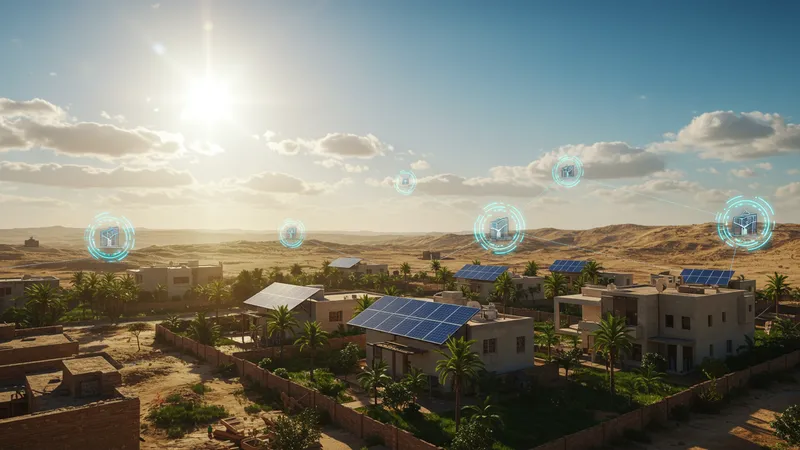
Here's a stunning revelation: many Egyptian homes are now using solar energy not just for lighting but also for enhancing traditional crafts. Imagine the bustling workshops of Cairo, where artisans employ solar-powered machinery to carve intricate patterns seen on the streets. But that's not even the wildest part…
Contrary to popular belief, solar installations aren’t reserved for the wealthy elite. Recent estimates suggest that over 20% of installations are in lower-income districts, assisted by surprising government incentives. Yet, this isn't even scratching the surface of the transformation…
Early adopters report a dramatic shift not just in energy bills, but in lifestyles themselves. Imagine families sharing homemade meals under solar-lit patios, free from the oppressive cost of electricity. What happens next shocked even the experts…
Many Egyptians assume solar installations are prohibitively expensive, a luxury reserved for the affluent. However, what most don't know is the dramatic shift in market dynamics over the past decade. Installation costs have decreased by 65%, making solar a more viable option for the average household. This rapid decrease has stunned traditional energy suppliers who never anticipated such a widespread adoption. What you read next might change how you see this forever.
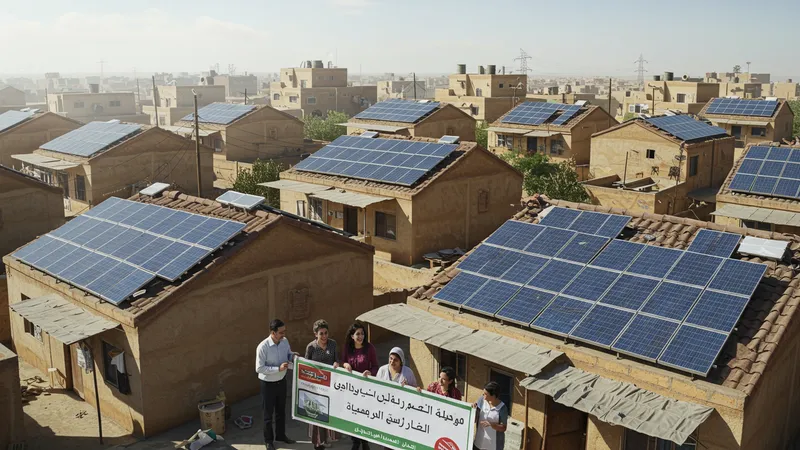
Government subsidies further dissolve financial barriers, offering tax breaks and low-interest loans to kick-start solar journeys. These initiatives are not just comprehensive; they also encourage a sense of ownership among participants. And it’s not just about the money. Solar energy offers a breath of freedom previously unimaginable under the dominance of electric monopolies. But there’s one more twist…
The notion that solar panels are cumbersome and aesthetically unpleasant simply doesn't hold true anymore. The latest designs are sleek and blend effortlessly with traditional Egyptian architecture, preserving the nation’s aesthetic heart. Many residents find their rooftops looking more refined with these modern additions, counter to early apprehensions about visual impact. Yet again, there’s something else that ignites curiosity.
Imagine the socio-economic impact on a macro scale. As more homes shift solar, the country’s dependency on imported fuels could plummet, empowering local economies to retain more wealth internally. It's not just a household transformation—it's a nationwide metamorphosis. But the story doesn’t end here.
It’s easy to focus solely on the economic savings solar offers, but a broader impact lies hidden in plain sight: environmental revival. Egypt's historic struggle with pollution finds an ally in solar energy, reducing reliance on fossil fuels that darken skies and jeopardize health. Air quality improvements are just the initial ripple in a wave of change sweeping across the country, bringing an unexpected green renaissance to arid landscapes.
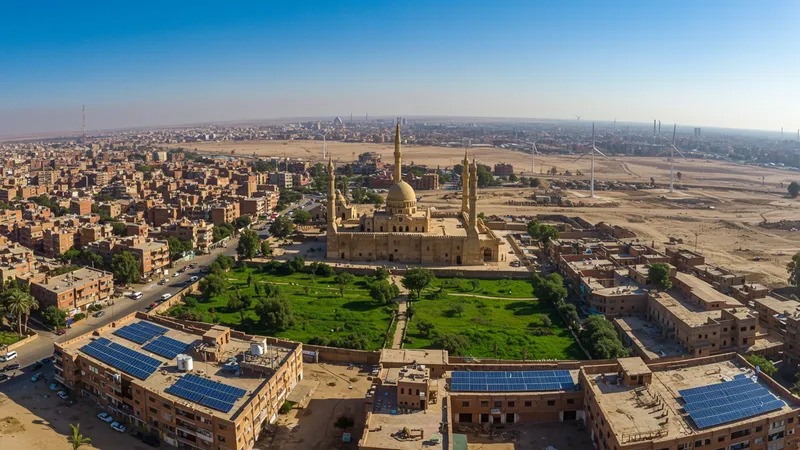
Increased adoption of solar systems spells a reduction in carbon footprint across urban and rural areas alike. Imagine cityscapes breaming with cleaner air, once suffocated by endless traffic emissions now freely breathing. This isn't just about saving money; it's a lifeline for the environment itself. But environmental rejuvenation prompts yet another stimulating thought.
With solar taking stage, there's a fascinating push toward sustainable living practices among Egyptian communities. Gardens flourish, irrigation improves, and even aquaponics—a creative solution for food scarcity—basks in newfound solar glory. Concurrently, this movement fosters an educational surge as schools incorporate solar technology into their STEM curriculums, inspiring a new generation of eco-warriors.
A notable uptick in jobs related to solar energy emerges as well. Employment opportunities explode, from installers to educators teaching the next wave of solar pioneers. The once limited job market finds vigor and diversity through this solar revolution, challenging traditional job sectors. The revelations so far just scratch the surface of this groundbreaking shift.
Once dismissed as a foreign novelty, solar energy has now become a beacon of pride and identity among Egyptians. The technology has integrated itself so thoroughly into daily life that it’s redefining cultural norms surrounding energy consumption and stewardship. It turns out solar isn't just power; it's empowerment. It’s a story of reclaiming tradition through innovation.
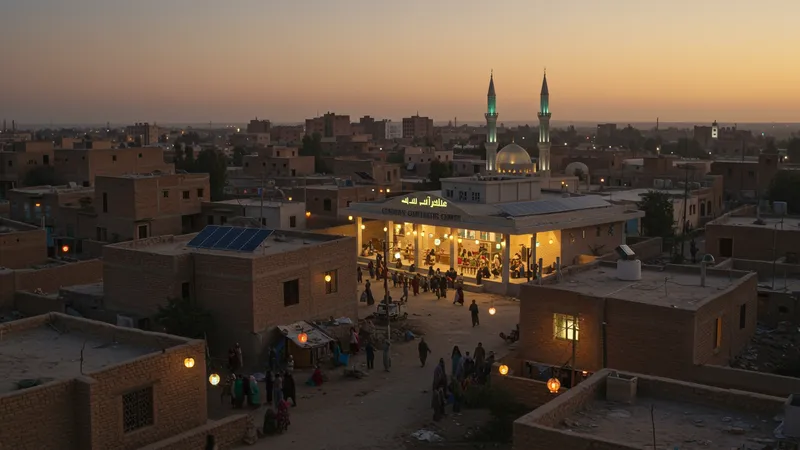
This cultural embrace of solar spreads across neighborhoods, turning them into vibrant examples of progress. Community projects harness solar energy for public lighting and powering community centers, especially in remote villages where traditional power remains scarce. The social capital gained through sharing resources fuels a renewed sense of collaboration and unity.
Solar energy is not just a tool but a movement igniting discussions around sustainability and self-reliance. Street bazaars buzz with conversations not just about the fine art of bargaining, but also about the latest solar endeavors. This shift brings both a modern edge and a prideful link back to ancestral reverence for the sun as a provider of life.
The focus now turns to sustaining this cultural shift, ensuring future generations will grow up in a harmonious balance with both nature and technology. Schools, mosques, and community centers are leading the charge, integrating solar into their very fabric and daily operations. The changes aren't stopping— they’re accelerating.
In an unlikely twist, women have emerged as key proponents in Egypt's solar narrative. Traditionally centered around the home, women are now becoming the authoritative voice advocating for solar installations in local communities. This transition marks a cultural pivot with women steering the course of a renewable future.
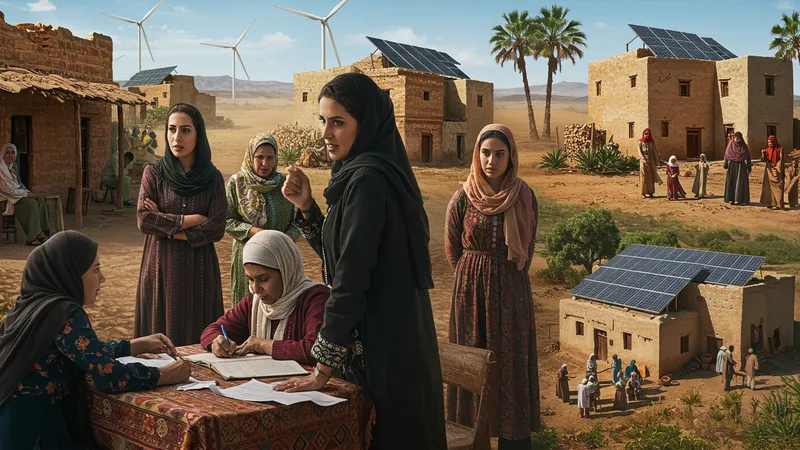
They organize co-op groups, manage community funds for solar panels, and lead educational workshops, transforming perceptions both at the household and community level. Notably, they are influencing purchasing decisions and managing installations, a stark contrast to historic norms. Women are redefining their roles and becoming proactive solar revolutionaries. But there’s more depth to this transition.
The impact ripples beyond households into the realms of employment and entrepreneurship. Women are increasingly taking up roles as electricians, saleswomen, and solar technicians. This emerging trend challenges traditional gender roles, presenting solar innovation as a catalyst for broader societal change.
Such empowerment encourages youth participation, especially for girls observing role models at the forefront of change. The solar sphere serves as a dynamic stage for challenging stereotypes, fostering equality, and encouraging future generations to dream larger. Yet, these changes seem just the start of an even larger transformation yet to come.
The surprise isn't just in the sweeping solar adoption—it's also in the technologies born right here on Egyptian soil. Creative minds in Cairo and Alexandria are developing unique, locally-tailored solutions to maximize solar efficiency. These aren’t just solutions for Egypt, they are innovations that could influence global solar practices.
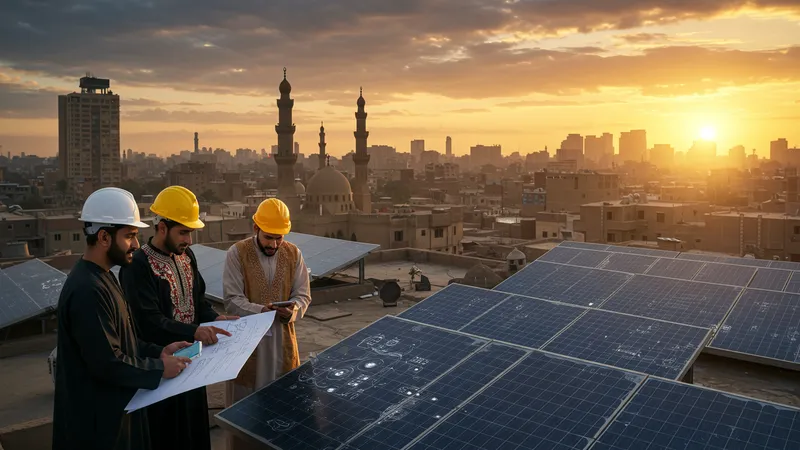
Advancements such as bifacial solar panels, which gather sunlight from both sides, promise up to 30% more efficiency compared to traditional options. These tech marvels were once a far dream, but today, they're reshaping what’s possible in residential solar setups. But the ingenuity doesn't stop at efficiency.
Combining solar with smart home technology, residents are achieving holistic energy management unseen before. Smart meters and energy monitoring software let homeowners optimize their energy use, minimizing waste and maximizing savings. This synergy not only enhances home efficiency but cradles environmental responsibility.
The broader impact unfolds as tech innovations drive a burgeoning solar sector, creating jobs and shifting economic opportunities nationwide. These advances provide worthy proof that Egypt is not just a consumer of technology but an important contributor to global energy solutions. Prepare to be amazed by the potential yet harnessed.
Who would have guessed that solar panels could become as desirable as lavish interiors? Yet, today, having a solar-powered home could significantly boost property value in Egypt. The real estate market has responded positively to this trend, shedding a new, captivating light on property investment strategies.
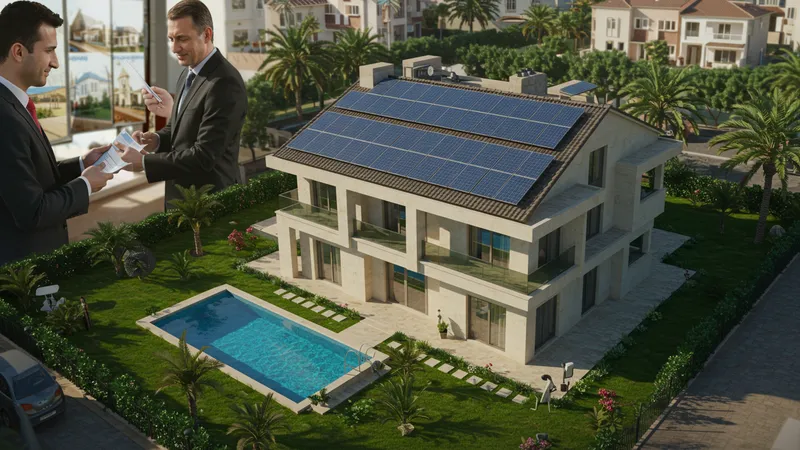
Potential buyers now view solar installations as lucrative value additions, particularly in a market where energy prices show no signs of waning. Anecdotal evidence suggests that properties featuring solar setups are selling at a premium, and agents are noticing faster closing times compared to non-solar counterparts. But this is more than economic value.
The septic reputation of solar as mere green vanity is dissolving. Instead, it’s seen as integral to the practical, forward-thinking buyer looking to invest in long-term sustainability. Solar homes provide a peace of mind knowing energy consumption aligns with eco-friendly ideals without sacrificing modern comforts.
This transformative influence on real estate represents a pivotal turn in buyer preferences, sending ripples through the market. It's also changing perceptions of competitors, compelling developers to incorporate solar features preemptively to stay competitive. The broader implications still unfold.
Despite widespread adoption, bustling urban centers like Cairo still present challenges and opportunities for solar energy systems. Rooftops offer untapped potential where constraints previously stifled solar ambitions, but innovations are steadily mounting aggressive campaigns to utilize this space.
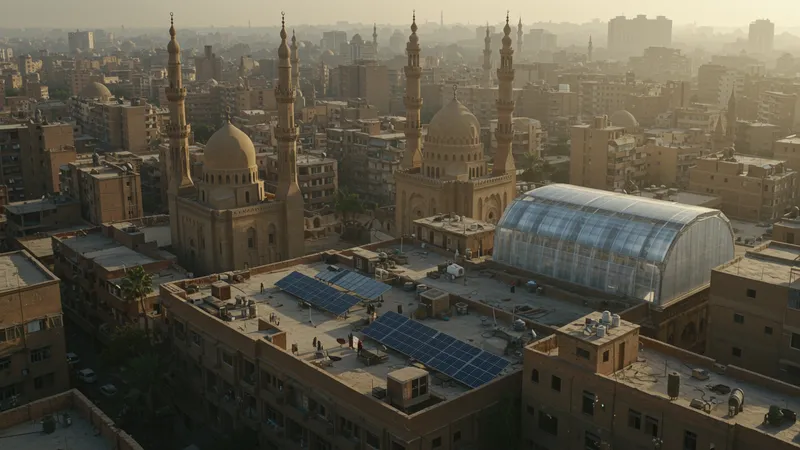
Researchers pilot new panel designs able to function efficiently within the tight, uneven terrain typical of urban landscapes. Advances in flexible solar tiles and transparent PV glazing provide promising solutions. With additional state support and market incentives, urban solar expansion is more viable than ever before.
Developers also capitalize on unused spaces starring integrated solar installations into transportation hubs and parks revitalizing areas burdened by overcrowding. This progress not only transforms cityscapes but serves as educational tools showcasing practical renewable avenues within a densely woven urban tapestry.
As Cairo and other major cities press forward, these solar ventures are projected to alleviate strain on national power grids. Encouraging cooperation between municipal authorities, private enterprises, and local communities remains paramount in achieving solar sufficiency, promising a vibrant energy future.
In a twist almost literary, community solar projects rekindle hope for rural and lesser-served neighborhoods across Egypt, overturning decades of energy inequity and uneven distribution. These initiatives offer subscription-based access to shared solar setups, introducing new benchmarks in resource fairness.
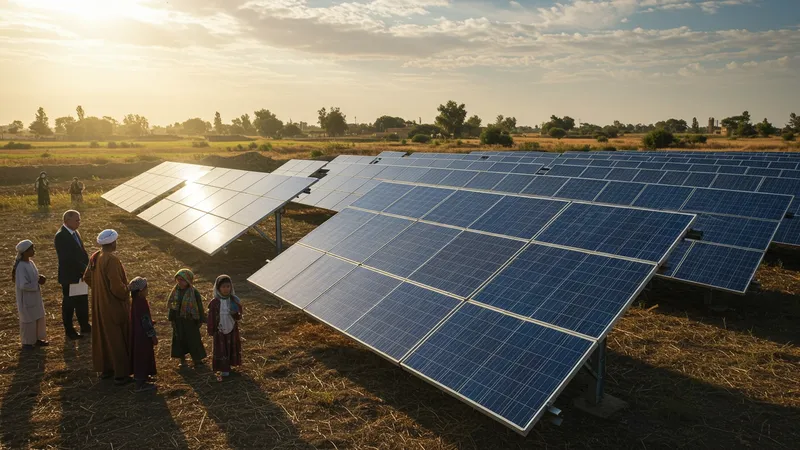
These projects attract keen interest from both local and international investors eager to foster sustainable growth, with Egypt primed as a proving ground. Successful outcomes here could serve as templates for solar adoption worldwide. Yet, their rollouts harbor still untapped opportunities and potential criticisms.
The chance extends beyond energy solutions into economic upliftment as community solar sites blossom into sources of employment and regional hubs. From planners and operators to support staff, numerous roles enjoy fresh significance, injecting much-needed vitality into stagnated local economies.
Critiques pointing toward economic disparities and rich-poor divides glimpse potential barriers. Addressing these concerns is crucial, yet optimism reigns high as such projects continue challenging preconceptions, ushering prosperity one sunbeam at a time. The change appears underway.
Solar integration in Egyptian education rapidly becomes an intriguing narrative of innovation meeting tradition. Schools now incorporate renewable energy concepts into curricula, paving the way for aware, environmentally responsible future generations conscious of their carbon footprint.
Practical, hands-on lessons take center stage, equipping students with knowledge and experience usually reserved for universities or technical institutions. Solar panels installed within school premises serve as real-time learning tools making renewable energy accessible, relatable, and exciting. But this isn't merely academic.
The results manifest directly as students inspire transformative change within households, advising family members on feasible solar technology or sustainable habits. Solar education extends beyond factual teaching; it shapes genuine environmental advocates. But its integration is only beginning.
As engagement grows, institutions explore deeper embedding renewable strategies and outreach, driving policy changes on education levels across Egypt. The cycle fosters ongoing interest and participation in solar technology, sustaining the momentum in creating informed, responsible citizens ready for future challenges.
Beyond mere cost savings, the unseen environmental boons of solar adoption in Egypt showcase a beacon of hope for the region's fragile ecosystems. By slicing reliance on fossil fuels, solar reduces harmful emissions, heralding financial preservation and ecological rejuvenation.
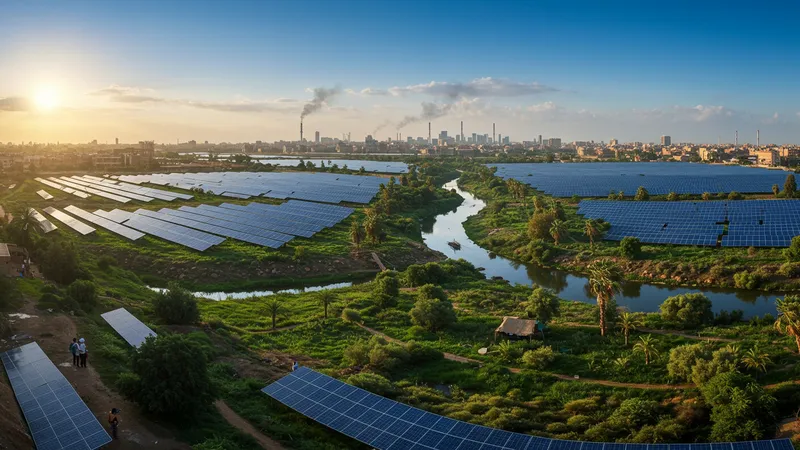
Carbon emissions sharply decline as community-by-community embraces solar potential, replenishing air quality ravaged by industrial activity and unchecked automobile growth. This shift emboldens tourism efforts as natural splendor reemerges unmarred by smog-laden skylines or pollution-choked rivers.
Equally vital is the newfound appreciation for conservation spurred through renewable adoption that fuels national pride. Flora and fauna once threatened near extinction find salvation in solar, as habitats stabilize, nurturing wildlife populations while promoting biodiversity and environmental cooperation.
While economic shifts and energy reliability dominate headlines, this green renaissance quietly lays groundwork for future generations to inherit a thriving Egypt, poised to symbolize possibility within a rapidly evolving global continuum. The story we’ve unfolded shows a landscape transformed.
Yet amid optimism lies resistance, shading the solar landscape. Deep-seated traditional beliefs and infrastructural inertia sometimes clash with bold, renewable visions. While technology has adapted, culture shifts take time, demanding persistence and patience.
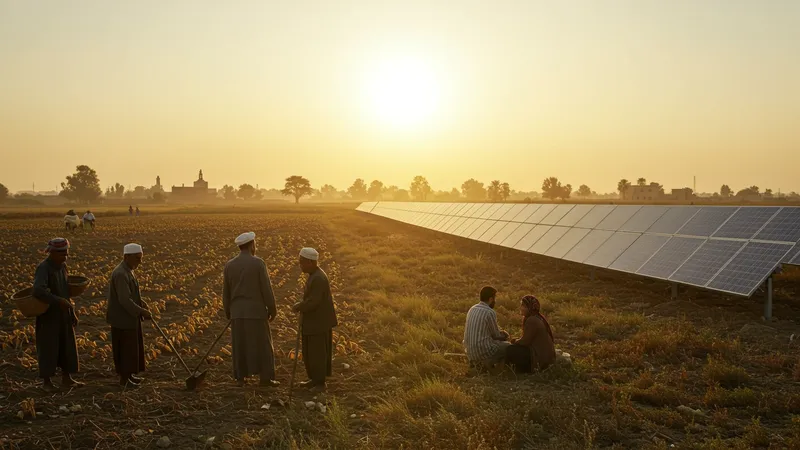
Some rural areas stubbornly cling to antiquated practices, spurning solar education attempts. Overcoming skepticism involves dialogues infused with empathy, fostering understanding between generations, creating spaces where innovation meets conventional ethos rather than steamrolling over it.
On an infrastructural note, modernization struggles can sap morale, as solar faces hurdles in compatibility with older grid systems, investment irregularities, and bureaucratic red tape. Streamlining regulations and enhancing government support drives momentum for equitable adaption.
Despite these obstacles, there's hope: gradual attitudinal shifts as benefits become undeniable, convincing previous skeptics of solar's value. This universal appeal transcends barriers, acting as catalyst assuring Egypt strides confidently into a renewable future, bolstered by innovators, enthusiasts, and policy shapers alike.
Egypt strides confidently onto the global stage, setting benchmarks with its solar acumen. By embracing renewable energy wholeheartedly, it showcases remarkable adaptation and growth. The global community looks to Egypt, signaling mass curiosity: how did they achieve it?
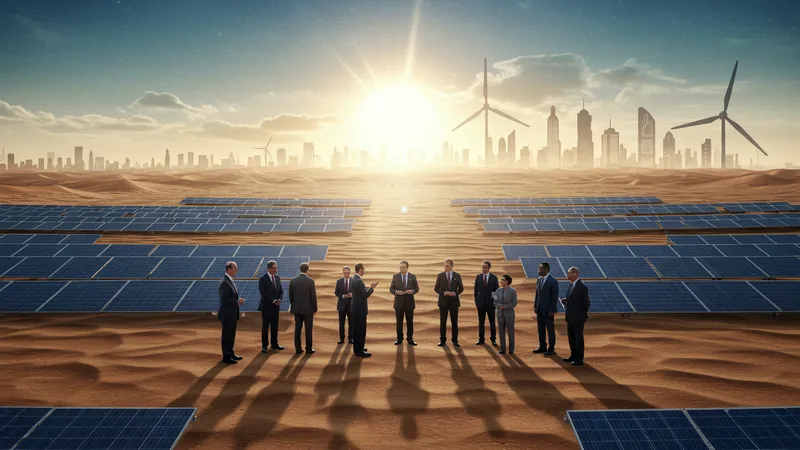
Developed nations partner with Egyptian counterparts, yearning to replicate a roadmap for sustainable progress while observing its ongoing renewable maturation. Solar forums amplify Egypt’s voice amidst world players, bridging dialogues spanning continents, reaffirming its new role as thought leader.
Bringing actionable research to light, Egypt innovates in energy storage solutions, promoting decentralization vital to emerging economies seeking stability amid mounting consumption demands. It's a template offering lessons, partnerships, and knowledge exchanges—doors wide open.
The potential impact of Egypt's solar success story stretches borders, reaching regions yet realizing their renewable capacities. Collaborations evolve as instances of inspiration, ensuring Egypt remains poised for continued greatness within a world ever-accelerating toward renewable horizons.
At its core, Egypt’s solar story is about humanity. People’s narrative interwoven with sunswept days leading evenings rich in community connection. Solar adaptation opens discussions about resilience, creativity, and a collective longing for a better tomorrow.
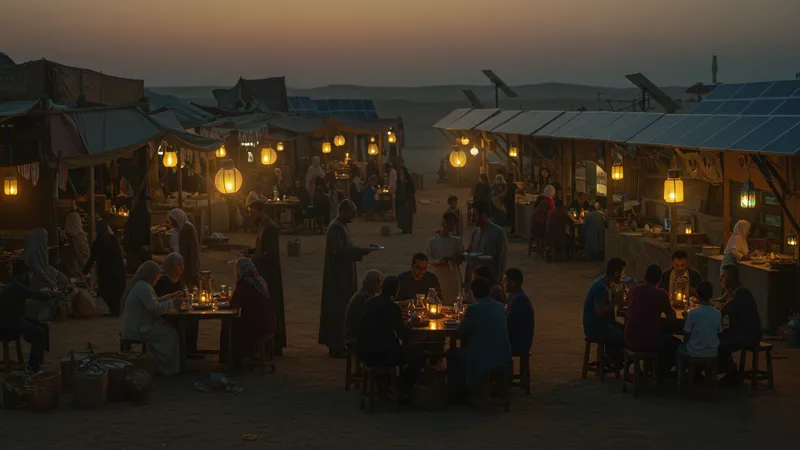
This movement isn't faceless; it's rooted in dreams sparked over family dinners or spirited bazaars. Real people share milestones and setbacks, co-authoring the rich, vivid tapestry that encapsulates ambition, relentless dedication chasing aspirations against all odds.
Individuals break boundaries, fueled by determination, crafting technological marvels from neglected dreams refusing to remain dormant. Solar innovates and inspires. True change resides not in panels or wires, but hearts and minds transforming visions into tangibility.
Thus unfolds Egypt’s solar odyssey—one coupling heritage with innovation—even when obstacles mount, while communities push boundaries in pursuit of sustainable possibilities. This is your call to belief and action. Join the solar tapestry: light-filled, collaborative. Where will this story of humanity write you?
Share this journey. Solar isn't just energy. It’s transformation—your voice helps shine. Bookmark, discover, unleash solar brilliance!